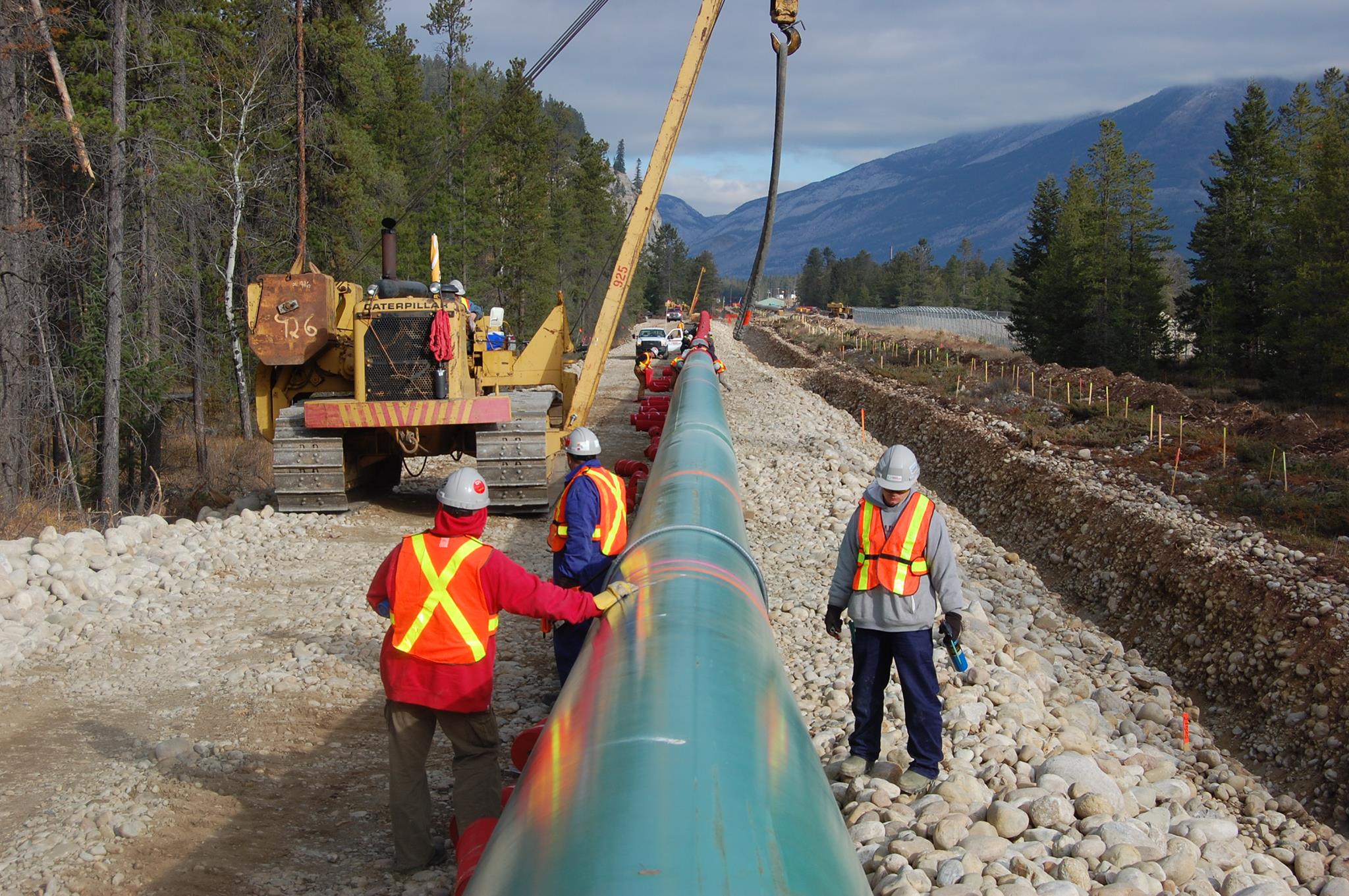Canada News
‘We’re not giving in,’ Wet’suwet’en hereditary chief says in wake of arrests

Before the exclusion zone was lifted, Cpl. Chris Manseau said the RCMP didn’t know if pipeline opponents planned to set up new obstructions on the road leading to the company’s work sites. (File Photo: Trans Mountain/Facebook)
VANCOUVER — Hereditary chiefs of the Wet’suwet’en Nation are pledging to continue fighting a natural gas pipeline through their traditional territory, days after 28 of their supporters were arrested for blocking access to a work site in northern British Columbia.
Na’moks, one of five clan chiefs, said the First Nation’s members and supporters should return to the land and remain peaceful.
“We’re not giving in, we’re home, we’re looking after our home,” said Na’moks, one of five Wet’suwet’en hereditary clan chiefs who assert title to a vast 22,000-square-kilometre area because they have never signed a treaty ceding their traditional territories.
Na’moks said he believes supporters are prepared to be arrested again in support of an eviction notice that the chiefs issued to Coastal GasLink after the company obtained a court injunction requiring obstacles to be removed.
“I believe so because we’re being non-violent, we’re being peaceful. We’re actually following the law and the eviction we gave them is following our law,” he said in an interview.
Karla Tait, who was arrested Monday, said she is planning to return to the Unist’ot’en Healing Centre where she volunteers clinical services.
Tait was among seven people arrested there, along with her mother Brenda Michell and her aunt Freda Huson, who are both hereditary chiefs.
Tait said the women began singing and drumming three days before the RCMP reached the site last week and they were singing a women’s warrior song at the time of their arrest.
“I think the scale of force that showed up was still disproportionate to any kind of threat that would be present,” Tait said, adding that a chief told the RCMP via provincial government liaison Nathan Cullen that those at the Unist’ot’en camp were unarmed.
Tait, who is planning on returning to her work on Wet’suwet’en territory, was released from custody and has a civil contempt hearing scheduled for April 21.
“I’m hopeful we’re able still to engage in our Aboriginal rights that we’re able to support the land-based healing work we do at our centre without interference and criminalization by the RCMP,” she said. “But I guess, given the behaviour to date, I’m doubtful and very distrustful that that will be possible.”
Coastal GasLink said in a statement Tuesday that it will redouble efforts to engage with the hereditary chiefs and with the Unist’ot’en in search of a solution that benefits the Wet’suwet’en people. The company recognizes the benefits of the Unist’ot’en Healing Centre and will continue to support its operations by doing all it can to ensure the safety of those staying there, it said.
The Wet’suwet’en Nation and supporters will also continue challenging the project and enforcement of the injunction in other ways, said Tait.
The hereditary chiefs have filed an application for judicial review of a five-year extension of Coastal GasLink’s environmental assessment certificate granted by the B.C government.
The B.C. Civil Liberties Association has also filed complaints with the Civilian Review and Complaints Commission for the RCMP regarding an exclusion zone that was placed on the area.
“We’re going to pursue any avenue available to us to ensure that our chiefs’ wishes are honoured that this project not proceed,” Tait said.
The RCMP lifted the exclusion zone Tuesday and Coastal GasLink has said construction will resume this week.
“The right to peaceful, safe and lawful protest, and freedom of expression, are important parts of Canada’s democracy,” the Mounties said in a statement on Tuesday. “However, blocking roadways is both dangerous and illegal. While we respect the right to demonstrate peacefully, police of local jurisdiction will enforce the law with sensitivity.”
A company spokesman did not immediately respond to an interview request on Tuesday or Wednesday.
Before the exclusion zone was lifted, Cpl. Chris Manseau said the RCMP didn’t know if pipeline opponents planned to set up new obstructions on the road leading to the company’s work sites.
“That’s the million dollar question,” he said.
“The injunction stays in place, the injunction doesn’t disappear. So if the opponents come back and they block the bridge, drop trees, what have you, then I guess we go back up there. It’s a Supreme Court injunction, this isn’t something we cannot enforce.”





















